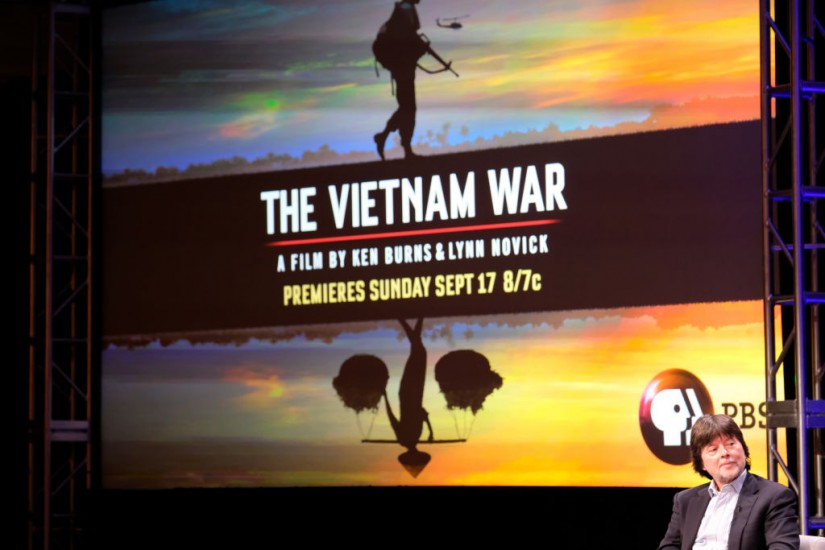In our fractured historical moment, Burns and Novick defiantly make films predicated on the notion of a unified culture. Burns and Novick have stressed that The Vietnam War is about bringing people together—about creating a “reconciliation.” It’s a common theme of Burns’s work. The Civil War, still his most famous documentary, argued that the Civil War was necessary to forge two halves of a country that had been at odds since their inception. It also implicitly suggested that the documentary itself, which humanized both slaves and Confederate soldiers, played an integral role in finishing the job—in bringing all Americans together in a final understanding of the war. But Burns and Novick’s balanced approach ultimately gives everyone too much credit, while shying away from dishing out blame to those who deserve it. In their ostentatious rejection of ideology, they have sneakily put forth their own: that these rival perspectives are of equal value. It is an ideology that is increasingly out of step with our times.
The Vietnam War strains the wisdom of this approach to its limit. Is hearing all sides that much better than hearing a couple? The Vietnam War gathers testimony from over eighty people, including United States soldiers, intelligence officials, politicians, journalists, and an anti-war activist or two. Their counterparts in North and South Vietnam are also represented. In their zeal to reconcile these various factions, however, Burns and Novick handle division with kid gloves. They portray it, sure, but mournfully, as a kind of unavoidable, human tragedy. There’s a reluctance to assert that these divisions grow out of real forces that continue to influence American culture, such as a political establishment that lied its way into a devastating war not so long ago.
There are benefits to this approach, which is to create something so enormously multifaceted that it dazzles. In Ian Parker’s recent profile of Burns in The New Yorker, Werner Herzog put his admiration this way:
I later spoke to Herzog, who is a friend of Burns’s. Talking of The Vietnam War, he said, “I binge-watched it. I would feel itching: ‘Let’s continue.’” When he was through, he called Burns. “I just said, ‘This is very big.’” The film had flaws, he told me, “but it doesn’t matter.” The project was at once sweeping and serious. Herzog said, “Let’s focus on the big boulder of rock that landed in the meadow and nobody knows how it materialized.”

